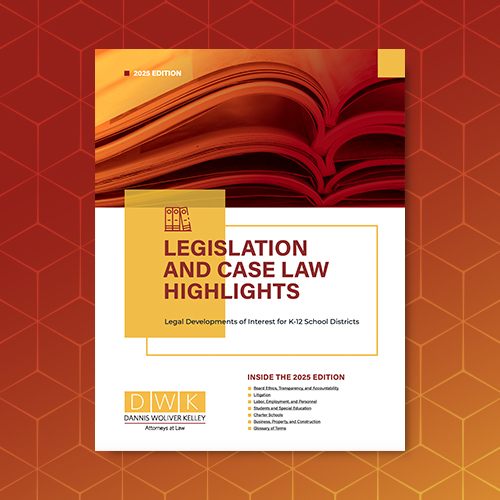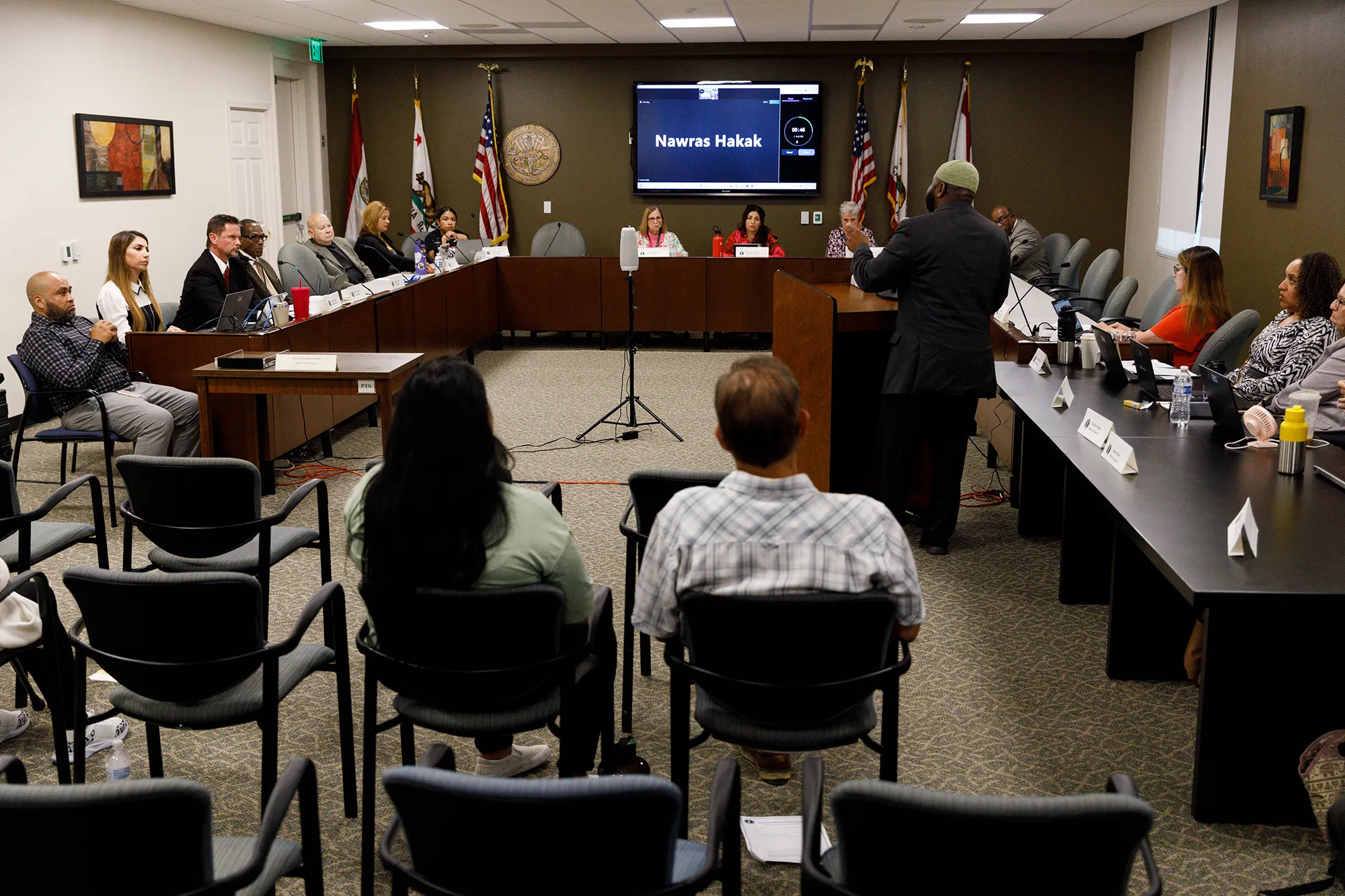The California Court of Appeal for the Fourth Appellate District recently issued an opinion upholding the dismissal of a counselor, Patricia Crawford, by the Jurupa Unified School District (District), due to Crawford’s repeated criticism of students who boycotted school as part of the “A Day Without Immigrants” protest in February, 2017. (Crawford v. Commission on Professional Competence of the Jurupa Unified School District (August 11, 2020; 20 D.O.S. 8193).) The District dismissed Crawford on the grounds that her conduct was “immoral” and showed she was “evidently unfit for service” under Education Code section 44932. The dismissal was upheld by the District’s Commission on Public Competence (CPC), by the trial court, and on appeal to the Fourth District. This opinion provides a good summary of the legal standards applicable to dismissals for immoral conduct in the context of certificated employees’ political comments.
Background
In February, 2017, almost a quarter of the students at the District’s Rubidoux High School (RHS or school) boycotted school to participate in the nationwide effort to support immigrants and to protest President Trump’s immigration policies. The student population at RHS is approximately 90% Hispanic/Latino. Crawford, a guidance counselor at RHS, criticized the boycotting students in an email to a colleague and in comments on another RHS teacher’s public Facebook post. She referred to non-boycotting students as the “serious” students on campus, and said that the cafeteria was “much cleaner” without the missing students. She criticized boycotts in general and referred to students who participate as “useful fools.” She also responded to a student’s comment by telling students who supported the boycott to “[g]et over yourselves.” In a subsequent email to the RHS Principal and another administrator, she said she could “no longer eat lunch in the staff lounge because of the anti-Caucasian conversations,” and claimed that “[t]he environment has become very uncomfortable at RHS.”
The District received more than 250 email complaints about the comments on Facebook, over 50 of which specifically referenced Crawford. The complaints generally concluded that Crawford had lost the trust and respect of the school’s students and, as a result, would be ineffective in her counseling job in the future. Following the complaints, the school was vandalized with graffiti critical of the teachers. A group of students then participated in a walkout to protest the Facebook post and comments, and police had to be dispatched to the school to control the crowd of students. At the next School Board meeting, 11 members of the public specifically spoke in criticism of Crawford, while no one spoke in support of her or any of the other involved teachers. Numerous local and national media outlets then contacted the District for comments on the matter and subsequently wrote articles about it, and the District was also contacted by the Anti-Defamation League, the American Civil Liberties Union and the Department of Justice regarding the matter. In the weeks that followed, RHS teachers addressed the controversy in their lessons.
The District put Crawford on administrative leave in May 2017 and ultimately dismissed her for “immoral conduct” (Education Code § 44932(a)(1)) and “evident unfitness for service” (Ed. C. §44932(a)(6)). She appealed the decision to the CPC, which upheld the dismissal because Crawford’s comments “negatively impacted students, the school, the district and the community.” The CPC concluded that Crawford’s actions qualified as immoral conduct, rendered her “evidently unfit to serve,” and justified her dismissal. The trial court agreed, and on appeal to the Fourth District, Crawford’s dismissal was affirmed.
Decision
The Court of Appeal relied solely on the CPC’s finding that Crawford’s conduct was immoral and, as a result, the District had demonstrated she was “unfit to teach.” (The standards for teachers are equally applicable to counselors such as Crawford.) The Court applied what are known as the “Morrison factors” in analyzing whether or not Crawford’s conduct rose to the level of “immoral.” (See Morrison v. State Board of Education (1969) 1 Cal.3d 214.) These factors are: (1) the likelihood that the conduct may have adversely affected students or fellow teachers, and the degree of such adversity anticipated, (2) the proximity or remoteness in time of the conduct, (3) the type of teaching certificate held by the party involved, (4) the extenuating or aggravating circumstances, if any, surrounding the conduct, (5) the praiseworthiness or blameworthiness of the motives resulting in the conduct, (6) the likelihood of the recurrence of the questioned conduct, and (7) the extent to which disciplinary action may inflict an adverse impact or chilling effect upon the constitutional rights of the teacher involved or other teachers.
The Court found that all of these factors supported the decision to dismiss Crawford, and, in particular, “Crawford’s comments had an undeniable negative effect on RHS generally and RHS students specifically.” This included many public complaints, comments from students who were “shocked” by Crawford’s words and no longer considered her a role model, and “significant negative media attention” focused on RHS, which adversely affected the school as a whole. Her comments were found to be discriminatory, and she lacked any “understanding or appreciation for the magnitude of her actions.”
In applying these factors, the Court was clear that the analysis must remain focused on the ultimate question of whether or not the employee is “fit to teach.” In this case, consideration of the Morrison factors led to the conclusion that Crawford was unfit to teach because, “[g]iven the public outcry and the loss of confidence in her abilities as a counselor among RHS students, parents, and administrators,” it was evident to the Court that her conduct was “detrimental to the mission and functions of [her] employer.”
Impact
This decision adds to the body of law that helps to define and apply the standards for certificated employee discipline, specifically “immoral conduct,” and may be particularly helpful in today’s currently charged political climate. It must be remembered that each case should be analyzed on its individual facts, by applying the Morrison factors carefully. The Court noted that “reasonable minds may differ” on whether Crawford’s conduct was sufficiently egregious to warrant dismissal, but upheld the CPC’s decision as supported by substantial evidence.
If you have any questions, please do not hesitate to contact a DWK attorney in our Labor, Employment and Personnel (LEAP) or Students and Special Education (SPED) practice groups.



